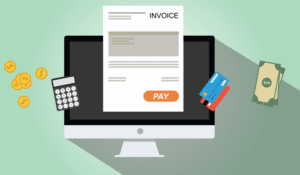
He is known for his pragmatic approach to fiscal policy and governance. We do not manage client funds or hold custody of assets, we help users connect with relevant financial advisors.

Summary Table: Dividend Accounting
On the other hand, stock dividends offer a different set of benefits. When a company issues stock dividends, it distributes additional shares to its shareholders instead of cash. Moreover, stock dividends What is bookkeeping can serve as a tax-efficient way to compound one's investment over time, as they do not generate immediate taxable income. When it comes to distributing profits to shareholders, companies have the option to choose between cash dividends or stock dividends.
- They also signal the company's confidence in future growth and can enhance shareholder equity.
- However, these dividends come with benefits and some things to think about.
- A) reduce total assets.B) reduce total liabilities.C) reduce total stockholders' equity.D) reduce retained earnings.
- Past dividend payments show how a company manages its finances and cares for shareholders.
- From a company’s perspective, stock dividends allow businesses to reward shareholders and encourage further investment without depleting cash reserves.
Financial Accounting: Tools for Business and Decision Making
The date on which a company declares dividend is typically termed as “date of declaration” or “declaration date”. The declaration of cash dividends represents company’s obligation to distribute its cash to shareholders. From accounting perspective, cash dividend, once declared, becomes company’s liability. The choice between cash and stock dividends is a complex decision that requires careful consideration. By weighing the pros and cons of each option and aligning them with one's investment goals, investors can make an informed choice that best suits their needs. While there is no one-size-fits-all answer to the cash versus stock dividend debate, the best option ultimately depends on a company's unique circumstances and goals.
Steady Income
After a cash dividend, share prices may drop by the amount of the dividend paid. For example, if the share was trading at ₹500 and a ₹20 dividend is paid, the price might fall to ₹480. In the case of stock dividends, the price adjusts due to the increase in share count. Cash dividends are usually taxed in your hands when you receive them.

📆 Date: Aug 2-3, 2025🕛 Time: 8:30-11:30 AM EST📍 Venue: OnlineInstructor: Dheeraj Vaidya, CFA, FRM
- When seeking income from cash dividends, focus on companies with a history of consistent payouts and sound financial health, including favourable debt ratios and strong cash flows.
- Companies use the stock dividend option when they do not have sufficient cash to pay cash dividends to shareholders.
- For instance, the dividend could have been stated as $2 per share.
- This can be particularly appealing to long-term investors who believe in the company's growth prospects and wish to accumulate more shares without purchasing them in the open market.
- This involves analyzing earnings reports and cash flow statements.
- Once the organization declares the dividend, it can’t reinvest the money into its business operations.
- When shareholders keep stock dividends and do not convert them to cash, they do not incur a tax obligation.
For a company, deciding between cash and stock dividends is like making a strategic choice. Cash dividends are a way to attract investors who want regular income from their investments. But, the company needs to be careful and check if it has enough money and is doing well financially before handing out cash. Conversely, giving stock dividends can make the market think positively about the company, showing it believes in its future growth.
- Investors need to consider the tax implications of receiving dividends.
- Consequently, dividend-paying companies are viewed as lower risk.
- Understanding how these dividends work and their implications is crucial for making informed financial decisions.
- But, the company needs to be careful and check if it has enough money and is doing well financially before handing out cash.
- Combined with their other effects, that could be enough for them to declare a stock dividend because that is the most effective way for them to get what they want out of the whole situation.
Navigating Crypto Frontiers: Understanding Market Capitalization as the North Star
Looking at these numbers shows how hard it is to choose the right dividend policy. Companies must think about their money situation, dividend safety, and changing markets. They need a strategy both cash dividends and stock dividends that suits them and makes their investors happy.
Which type of dividend is more beneficial for long-term investors?
Also, when investors receive cash dividends, they are not reinvesting their income. In the long-term, that can deplete their investments against inflation. However, cash dividends https://www.bookstime.com/ are better for investors who have shorter-term financial goals.


This offers them a share of the company’s earnings in the form of liquid funds. Ultimately, whether you collect a tidy pile of greenbacks or an extra handful of shares, dividends exist to reward you for your faith in a company. Make sure that faith is grounded in solid fundamentals, a track record of stability, and a management team you actually trust. Then whether you pick cash or stock, you’ll have a better shot at reaping the rewards.


